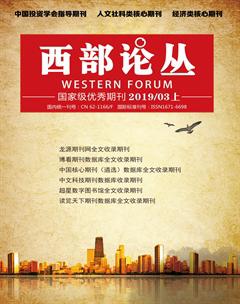核心家庭中学前儿童英语学习的环境创设
王晓洁
摘 要:家庭是幼兒出生后的第一所学校,父母则是幼儿第一任老师。父母的言谈、举止时刻影响着幼儿,对幼儿起着潜移默化的作用。父母养育幼儿的过程,就是对幼儿启蒙教育的过程。
关键词:核心家庭 学前儿童 英语教育环境创设
1. Introduction
Today, more and more nursery schools offer English courses. Children's English education is no longer a fad, but actually becoming an inexorable trend which can help children adapt to social progress and the globalization of the world. At present, the tendency of English education starts from the youth. Besides learning English in kindergarten, some children are sent by his parents to attend a variety of English courses for training. Moreover, when the children returned home, their parents would spare no pains to cultivate their children in order to improve their international competitive edge. However, many parents have not yet realized the importance of family education and the correct ways and means, they only value the words and daily phrases children learn and do not know what language education is, because the parents English level is low and their teaching methods are limited, or they are busy everyday. So, it is difficult to create a good family language learning environment, which makes it difficult for the extension of English teaching and does not produce very good results. Therefore, the effects of family education on children's English education cannot be ignored.
For kindergarten children, the access to the community is still relatively limited, so the kindergarten and the family became the main environment for learning English. In kindergarten, every English teacher would teach the kids some new words, songs, and so on. What they used is the immersion teaching model. That is, within a fixed time, they teach the children with English. Nevertheless, in order to help children to better understand and learn new knowledge, improving the efficiency of learning, we still need parents cooperation at home for their English learning. However, the reality is that parents often think that the enthusiasm of children learning English at home is less strong than in the kindergarten. Many children always attend the kindergarten English activities actively, but when they go back home, their emotions will soon plummet, and they would be even reluctant to speak English to their parents. Some parents simply rely on the kindergarten and teachers teaching as the primary English learning environment for children, which actually reduces the effects of children's English education. The emergency of this situation is: English education in kindergarten also needs family support and parents and kids should learn English together!
2. Children's English Learning
As for the acquisition and learning of children's language, some experts integrate the acquisition research of first language with second language acquisition research, proposing the learning hypothesis of language acquisition. As we know that acquisition happens unconsciously in daily contacts, but learning is a process of consciously learn to use language. The Relationship between language acquisition and learning, and what affects childrens second language acquisition will be discussed below.
3. The Design of English Learning Environment for Preschoolers in Nuclear Family
Based on the above analysis, it is not difficult to see that family education plays an important role in children's English education, its strength should not be neglected. Meanwhile, we should firmly seize the advantageous resources of the teachers and schools, making full use of then. Then, how to use the family resources to teach English? What are the issues to be noted in family English education? These are the questions to be explored in this chapter.
4. Conclusion
Today, in the globalization era of more and more frequent economic, political and cultural exchange, the status of English has been greatly enhanced in the minds of parents.
The creation of family language environment plays a vital role in childrens English learning. Just as Wang Binhua observed: “language capacity is developing in the process of using, the key to development children language capacity is to create one environment in which they can speak, do anything they want, also their questions can be solved in time”. Family environment as the first environment in childrens lifelong development will influence childrens language learning and their future development. Family language education is especially valued in nuclear families which focus their attention on childrens education. Compared with other families, nuclear families can provide a better learning environment for children, so nuclear families design of children's English learning is gradually refined. There are clear requirements and criteria on learning time, type of material and lesson content, and so on.
On the basis of the introduction of the concept and characteristics of nuclear family, the thesis analyzes the contributing factors making up the nuclear language learning environment, which will influence childrens English learning, such as parents educational background, economic status of nuclear family, family culture. one conclusion drawn is that nuclear family can provide a better learning environment for their children. Finally, concrete proposals and suggestions are offered as to the building of nuclear English learning environment: to create a better environment for childrens English learning, we must set up the right view of education, making children learn what they are really interested in, instead of attaining parents expectation, if so, education will lose its original meaning. In addition, the creation of English learning environment should permeate all aspects of life, making children improve their English proficiency through imperceptible influence.

